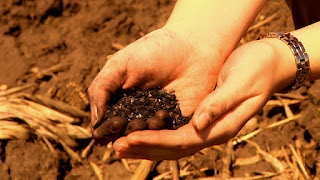What is Soil Mechanics?
Definition of Soil Mechanics
The
term ‘soil mechanics’ was coined by Dr. Karl Terzaghi in 1925 when his book Erdbaumechanic on the subject was
published in German. According to Terzaghi, ‘Soil mechanics is the application
of the laws of mechanics and hydraulics to engineering problems dealing with
sediments and other unconsolidated accumulations of solid particles produced by
the mechanical and chemical disintegration of rock, regardless of whether or
not they contains an admixture of organic constituents’. Soil mechanics is,
therefore, a branch of mechanics which deals with the action of forces on soil
and with the flow of water in soil.
The
soil consists of discrete solid particles which are neither strongly bonded as
in solids nor they are as free as particles of fluids. Consequently the
behaviour of soil is somewhat between that of a solid and fluid. It is not,
therefore, surprising that soil mechanics draws heavily from solid mechanics
and fluid mechanics. As the soil is inherently a particulate system, soil
mechanics is also called particulate
mechanics.




Comments
Post a Comment